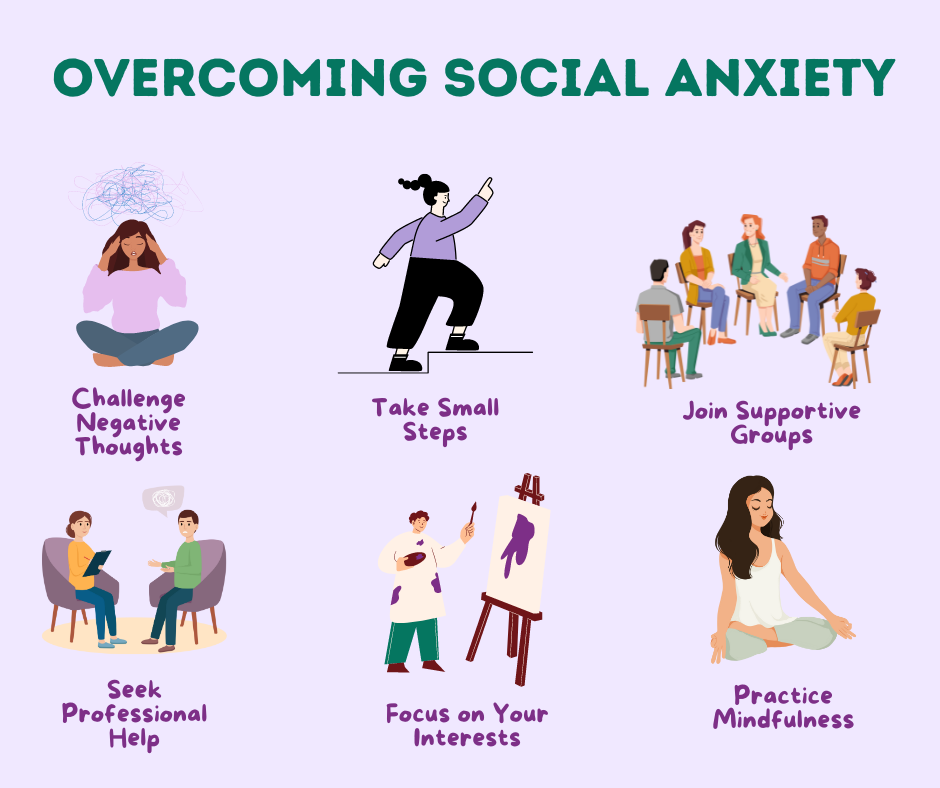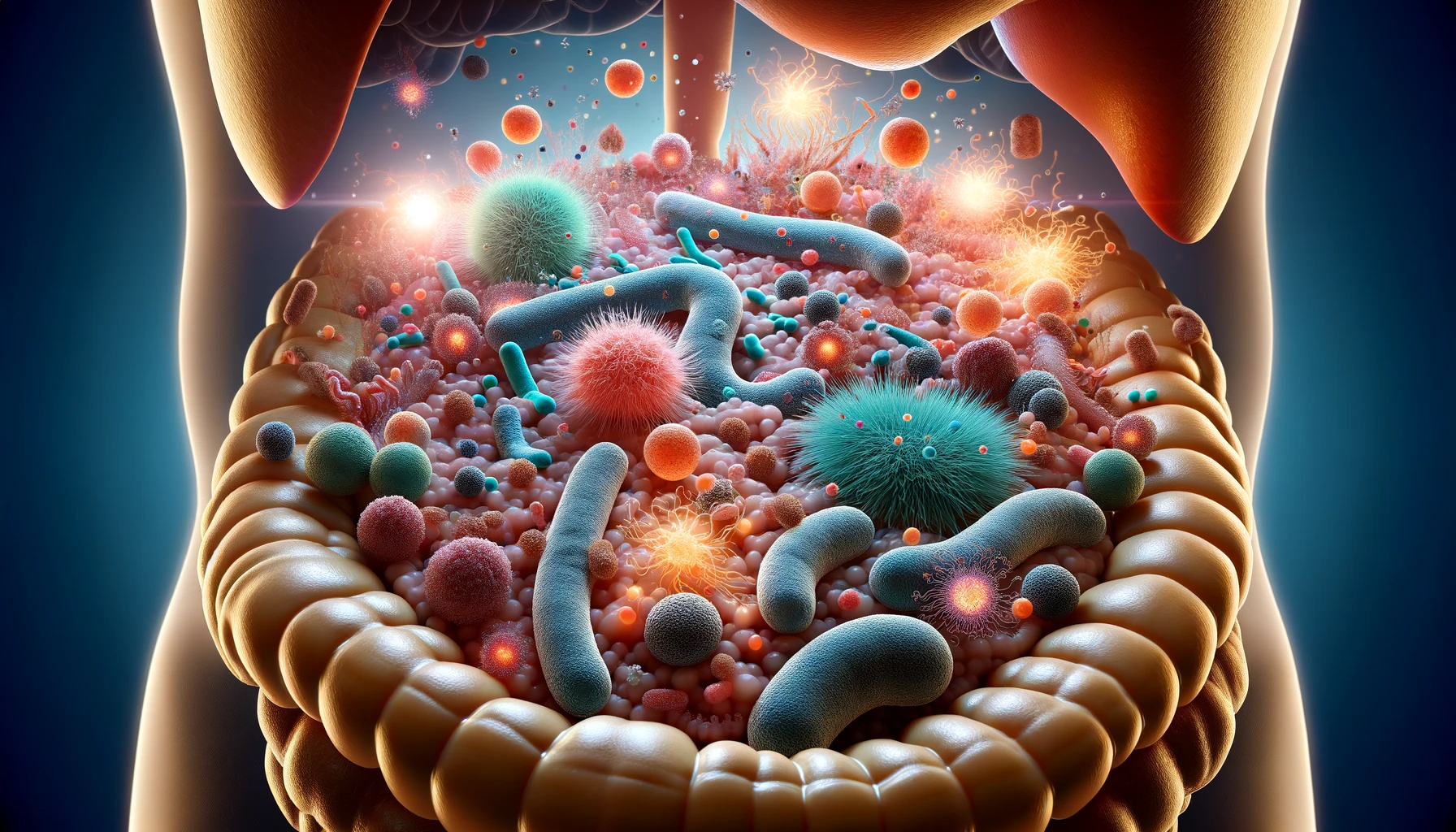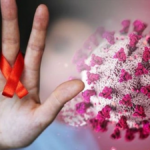Social Anxiety Disorder, Gut Microbiota, and Mental Health: Unraveling the Connection
Social anxiety disorder (SAD) is a prevalent mental health condition affecting millions globally. Often, we overlook the intricate relationship between mental health and physiological factors. This article delves into the fascinating connection between SAD and gut microbiota, exploring the impact of microorganisms on our mental well-being.
Introduction
A. Definition of Social Anxiety Disorder (SAD)
Social anxiety disorder, commonly known as SAD, is characterized by an intense fear of social situations and scrutiny. Individuals with SAD often experience excessive self-consciousness and fear judgment, leading to avoidance of social interactions.
B. Overview of Gut Microbiota
Gut microbiota, a diverse community of microorganisms residing in our digestive tract, plays a crucial role in maintaining overall health. These microorganisms contribute to various bodily functions, including digestion, immune system regulation, and even mental health.
The Connection Between Social Anxiety Disorder and Gut Microbiota
A. Exploring the Link
Recent research suggests a bidirectional relationship between SAD and gut microbiota. The gut-brain axis, a communication system between the gastrointestinal tract and the central nervous system, plays a pivotal role in this connection.
B. Impact on Mental Health
Imbalances in gut microbiota may contribute to mental health disorders, including SAD. Understanding this link opens new avenues for holistic approaches to mental health treatment.
Microorganisms and Their Role
A. Understanding Microorganisms
Diving into the microscopic world, various microorganisms populate our gut, influencing our physical and mental well-being.
B. Their Influence on Mental Well-being
Certain microorganisms produce neurotransmitters and other compounds that affect mood and behavior. The delicate balance of these microorganisms is crucial for maintaining optimal mental health.
History of Research
A. Early Studies
Early studies exploring the gut-brain connection date back decades, with researchers recognizing the influence of gut microbiota on neurological functions.
B. Recent Findings
Advancements in technology have allowed for more in-depth exploration of the gut-brain axis, leading to groundbreaking discoveries about the role of microorganisms in mental health.
Importance of Gut Microbiota in Mental Health
A. Balancing the Microbiome
Maintaining a healthy balance of gut microbiota is essential for overall well-being. Lifestyle factors, such as diet and stress management, play crucial roles in achieving this balance.
B. Implications for SAD Treatment
Understanding the connection between SAD and gut microbiota opens new avenues for treatment approaches. Targeting the gut microbiome could potentially complement traditional therapies for better outcomes.
Keywords Integration
A. FAFSA and Its Connection
While seemingly unrelated, the Free Application for Federal Student Aid (FAFSA) has indirect connections to mental health through the stress it may induce in individuals.
B. HumanMicrobes.org and Its Relevance
Platforms like HumanMicrobes.org provide valuable resources and information for individuals looking to understand the impact of microorganisms on mental health.
C. The Role of Human Microbes
Acknowledging the role of human microbes in mental health emphasizes the interconnectedness of our physiological and psychological well-being.
Exploring FAQs
A. What is the link between gut health and mental health?
The gut-brain axis serves as a communication channel, influencing mood and mental well-being.
B. How does social anxiety affect the gut microbiota?
Social anxiety can lead to stress, impacting the balance of gut microbiota and contributing to mental health issues.
C. Can FAFSA be connected to mental health?
The stress associated with FAFSA may indirectly affect mental health, highlighting the need for holistic well-being.
D. What role does HumanMicrobes.org play in understanding mental health?
Platforms like HumanMicrobes.org offer insights into the relationship between microorganisms and mental health, promoting awareness and understanding.
E. Are there specific microorganisms linked to social anxiety disorder?
Research suggests that imbalances in specific microorganisms may contribute to the development or exacerbation of social anxiety disorder.
F. How can one balance their gut microbiota for better mental well-being?
A balanced diet, probiotics, and stress management are key factors in maintaining a healthy gut microbiome.
G. What steps can be taken to improve overall mental health?
Besides addressing gut health, maintaining a supportive social network, seeking professional help, and engaging in stress-reducing activities are crucial for mental well-being.
Conclusion
A. Recap of the Key Points
This article has explored the intricate connection between social anxiety disorder, gut microbiota, and mental health. Understanding this relationship opens doors for holistic approaches to mental health treatment.
B. Encouragement for Seeking Help
If you or someone you know is struggling with social anxiety or mental health issues, seeking professional help is crucial. A holistic approach that considers both psychological and physiological factors can make a significant difference in well-being.
What You Need To Know
Understanding the connection between social anxiety disorder and gut microbiota is crucial for a comprehensive approach to mental health. Balancing the gut microbiome through lifestyle adjustments and seeking professional help when needed can significantly impact overall well-being








